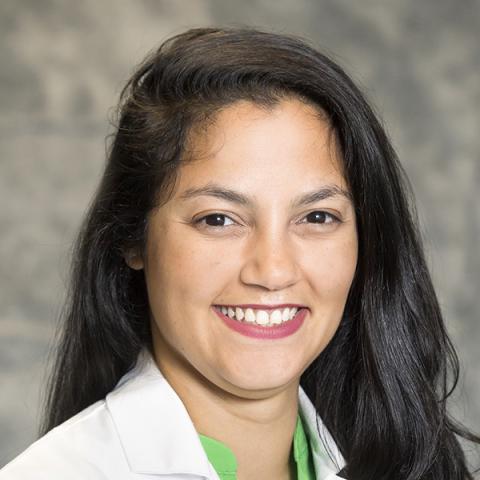Perspective From the Other Side
My first
On Valentine’s Day 2018, my husband and I went for our first primary care appointments since we were in college. We were both medical students, had recently turned 26 and were freshly kicked off our parents’ insurance plans, and obtained insurance through our medical school. As an aspiring family medicine physician, I was excited to have my health evaluated by someone other than another medical student and catch up on whatever was needed for health maintenance based on my age.
To my knowledge, the only medical issue I ever had was iron deficiency anemia with a low ferritin level. I mentioned this to my new primary care provider and she thought it would be reasonable to order a repeat ferritin along with other basic labs. I left my visit content with my provider and gained newfound confidence in managing my own medical care.
The spiral
On April 2018, I received a phone call from the clinic’s billing office asking when I would be making a payment toward my outstanding balance of $1,600 — an amount equivalent to one month’s rent. I was overwhelmed and frustrated because this was a non-acute visit simply to establish care with a new provider. I immediately called the insurance company — the first of many calls — to determine why the claim had been denied. Over the course of several months, I was told many things by many people.
- I was told the visit was coded as a “routine” visit instead of a “preventive care” visit.
- I was told the codes for the lab orders themselves were not preventive codes.
- I was told that all the labs — including the health maintenance-related labs — were denied because one of them was coded incorrectly.
- I was told they had charged me for two office visits, even though I had only had one office visit with the provider.
- I was told that it was an “establishing care” visit, not an “acute care” visit, so any labs not part of health maintenance were not covered unless the doctor sent a separate message claiming it was medically indicated.
The bill was sent to a debt collection agency in August. Before then, I had been hopeful this was just an administrative error. In my naive mind, I believed that if I did my due diligence — continued calling and updating the billing office and insurance company; took notes with names, dates, and call reference numbers; and persisted through the multiple reiterations of my story, constantly changing problems, and never-ending hold music — eventually they would recognize the error of their ways and cover this establishing care visit for a healthy young adult in full.
I felt powerless. I had limited knowledge of what to do or how to fix it despite the medical education I was obtaining to help others the way I thought my primary care provider was going to help me. My hope dissipated when the letter from the debt collector came in the mail. What may have been a small or insignificant sum to many was crumpling my ability to focus on the swirl of schoolwork from both medical school and my master’s program, research, and residency applications.
A Somewhat Resolution
In May 2019, two weeks before both my medical school and master’s program graduations, I noticed a door titled Patient Financial Services as I walked through the hospital. I walked in, mostly out of curiosity, but maybe with a remnant of hope. I told this poor woman at the counter everything I had gone through over the past year to have this bill paid — in tears, as I remembered all my frustration and fear. She listened patiently and only had one question: “How much money did you make in the year?” She said loans did not count, so when I informed her of the amount I made between all the odd jobs I had been working, she smiled and told me I qualified for charity care. She apologized for everything I had gone through and told me she was glad I would be able to graduate without having to worry about this bill any longer.
Lessons Learned
When I think back to this experience, I am astounded by the fear, the time and effort, and the determination required, even for a seemingly small medical bill. As a result, the experience has had a lasting impact on my view of insurance, how I feel when I seek medical care, and what I consider when I order labs or tests for patients. I can now understand how someone with limited financial resources or education would fear returning to a medical office because they never know exactly how much each visit or test will cost.
The small encounter I had with the feelings of uncertainty and powerlessness that result from incomplete insurance coverage have helped me understand that the economics of health care impact the health of our patients as much as the care we provide. While the finances of health care may affect subgroups of the population differently, I am in the perfect field to view the population from a wide angle as a family medicine physician able to care for every member of the population. I hope to use my master’s degree in population health management and family medicine training to improve the methods and distribution of health care delivery in our country.
Gabriela Plasencia is a first-year resident with the Duke Family Medicine Residency Program. Email gabriela.plasencia@duke.edu with questions.
Editor’s note: Duke Family Medicine residents guest blog every month. Blogs represent the opinion of the author, not the Duke Family Medicine Residency Program, the Department of Family Medicine and Community Health, or Duke University.
